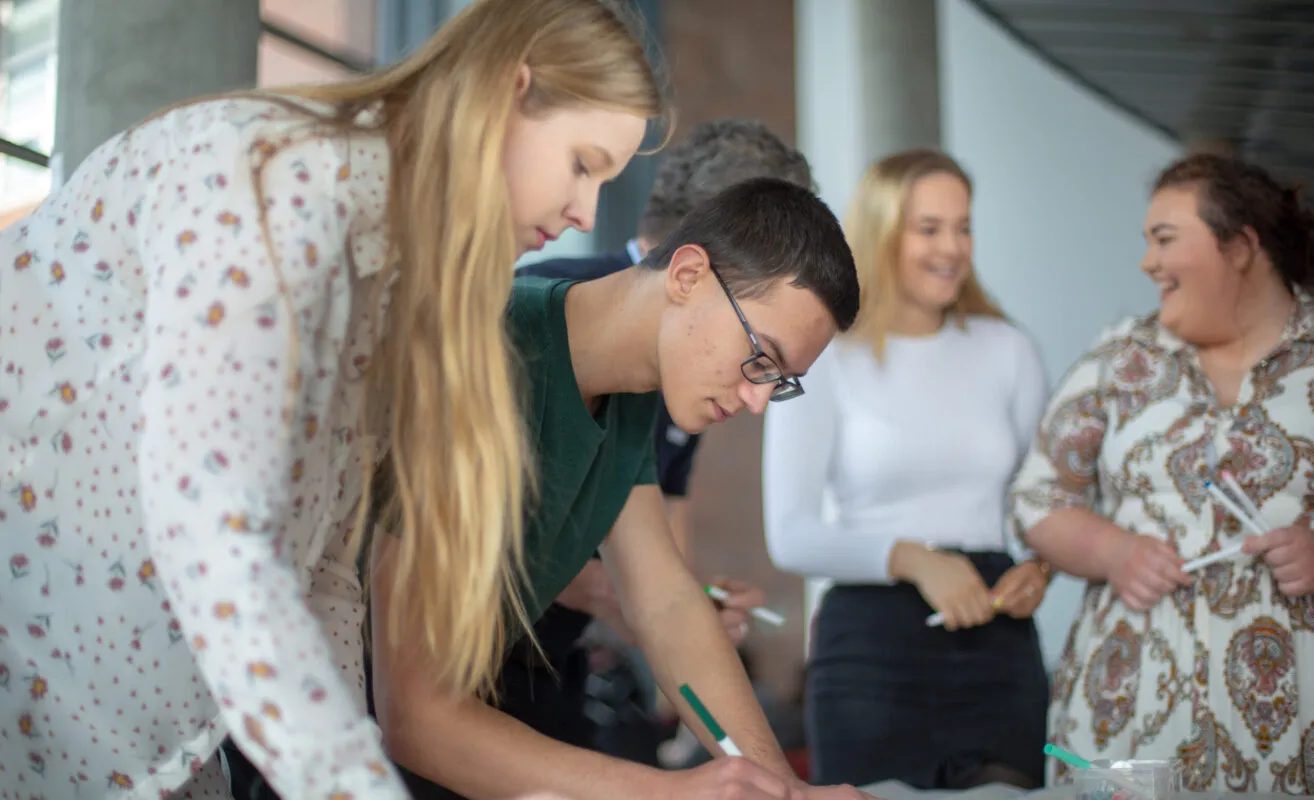Courses
Admissions & Support
Course Search
Courses
Admissions & Support
Course Search
Our Services
Our Community
Course Search
Professional Services
Location: Moylish, Limerick City
years: 2

The Community and Addiction Studies course offers participants the skills and competencies to work in the voluntary sector, as well as with State or NGO providers of community and social inclusion services. Graduates of this course pursue careers in community initiatives with a focus on inclusive practice, empowerment and collaboration.
Graduate employment opportunities are wide ranging, to include national, regional or local projects which are addressing addiction, homelessness, unemployment, cultural development and community sports initiatives.
The course is grounded in the principles of empowerment, human rights, inclusion and social justice. Graduates of this course will be furnished with the requisite knowledge and skills to work in and meaningfully engage communities affected by addiction, to support voluntary activity and to progress community projects.
There is a very substantial practical and applied component to this course, so students will develop the real skills and competencies required for the workplace. A practical placement in years two and three are a key element of the course, which will allow students apply their learning in a real-life environment.
Potential Applicants please note: All applicants accepting a place on this course will be required to undertake Garda Vetting
Department of Applied Social Sciences
Email: DASS@tus.ie
A minimum of 5 O6/H7 grades in Leaving Certificate subjects, including English or Irish. Mathematics is not a subject requirement for this programme.
TUS accepts QQI-FET/FETAC awards for entry on all courses of study. Please refer to our Admissions information for details.
Candidates applying as mature applicants may be required to attend an interview and may be requested to take an aptitude test to prove their suitability for a place on this programme.
International applicants should apply directly to the International Office at TUS, allowing plenty of time for completing the visa process. Applications for September start should be made by 1st June at the latest to ensure visas are processed in time. You should familiarise yourself with visa processing times for your country of origin to ensure you make a timely application. Find out more here.
Safeguarding In Communities
Credits: 5
Foundations in Addiction Theory
Credits: 5
Introduction To Community Development
Credits: 5
Introduction to Sociology
Credits: 5
Introduction To Youth Work
Credits: 5
Personal Development – The Self and Identity
Credits: 5
Models Of Community Work
Credits: 5
Substance Use And Mental Health
Credits: 5
Applied Social Policy
Credits: 5
Information Management
Credits: 5
Introduction To Groupwork And Facilitation Skills
Credits: 5
Personal Development – Groups In Action: Shaping The Self
Credits: 5
Applied Community Intervention
Credits: 5
Case Management
Credits: 5
Contemp. Issues In Addiction
Credits: 5
Physiological Processes Of Addiction
Credits: 5
Advanced Participation Skills
Credits: 5
Personal Development: Advancing The Identity Of The Practitioner.
Credits: 5
Programme Work Placement
Credits: 30
There are significant opportunities for professional and career progression within the community, State and voluntary sectors. Graduates will be eligible to work in a wide variety of roles including: Community Development Worker/Coordinator, Community Youth Worker, Policy Worker, Social Researcher/Research Assistant, Group Worker/Facilitator. Typically graduates may work for Family Resource Centres, LEADER companies, An Garda Síochána, the HSE, TUSLA, section 38 public agencies, as well as section 39 voluntary agencies (as per the Health Act 2004).
Successful graduates of this programme are eligible for to progress to year 3 of the Bachelor of Arts (Honours) in Community and Addiction Studies at TUS.